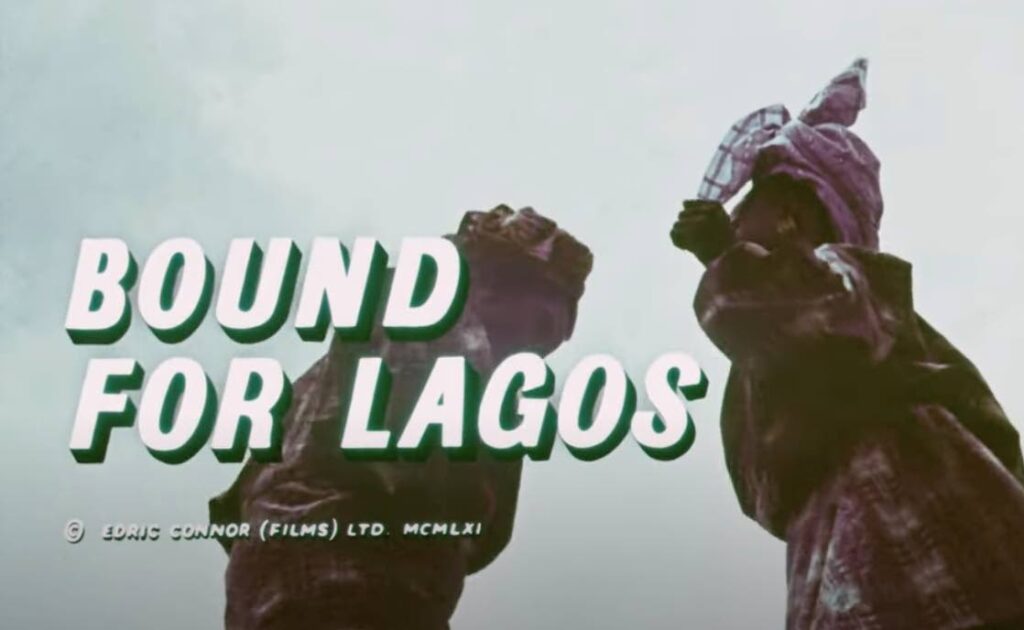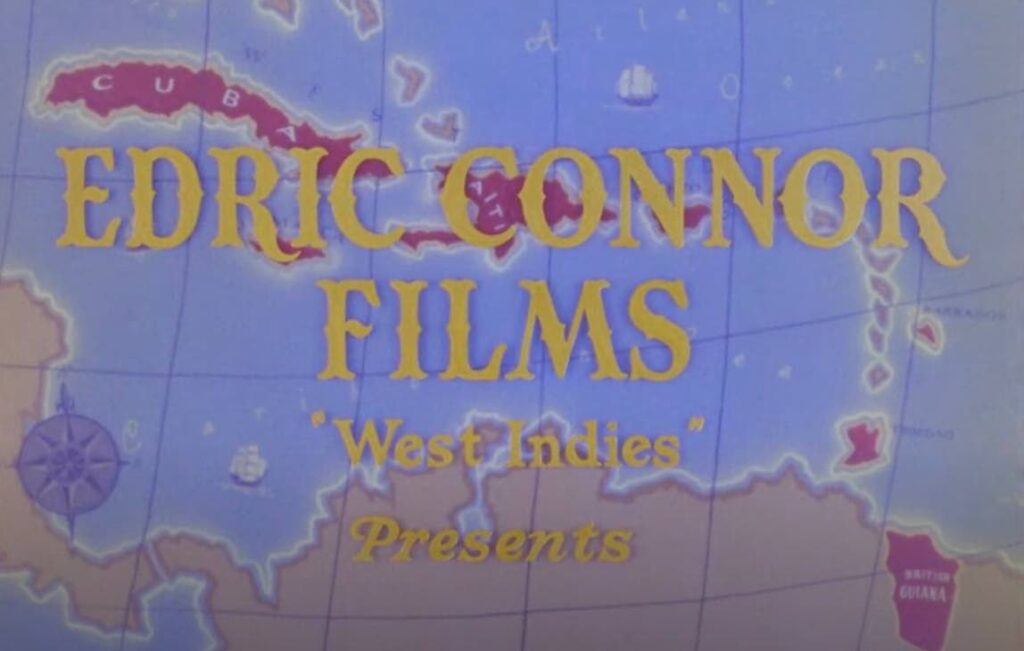1960s films by Edric Connor now online

RAY FUNK
The British Film Institute has digitised and made available online, four of the films that legendary TT actor, singer, and filmmaker Edric Connor made for his company, Edric Connor Films around 1960.
Connor left Trinidad for England in 1944 to work in the war effort as an engineer, but soon became a regular performer on many BBC radio programmes and went on to act and sing in stage, screen and television. He appeared in major Hollywood films like Moby Dick and The Vikings, was the first black actor to perform with the Royal Shakespeare Company in Stratford-on-Avon, was in musicals in the West End, and appeared in many television dramas in the UK in the 60s.
Frustrated by the limited acting roles for himself and other actors of colour in the 1950s, Connor trained to make films and started his own film production company. Sadly, it was short-lived, and the few films he made on trips to the Caribbean and Nigeria have not been available.
The four that have been digitised are now available on th web for free, though contributions are encourage for the BFI’s ongoing restoration work.
Three were made in the Caribbean. Jamaica Third Test (https://www.youtube.com/watch?v=MKBT_uwgB8Q) is a half-hour black-and-white documentary on the third Test during the 1959-1960 tour of the West Indies by the English team. The match took place in February 1960 at Sabina Park in Jamaica and ended in a draw. The commentary is by Ernest Eytle, a well-known cricket commentator for the BBC who went on to write a book on West Indies cricketer Frank Worrell in 1965. The film focuses on the match itself, without any interviews.

Connor had negotiated exclusive film rights for the series and got front-page news in England when the BBC and another channel, ITV, were excluded from filming this cricket series until after the third Test finished. In his autobiography Horizons, Connor said the story could fill a book, but that “many people at the BBC would not like such a book to be written.”
The other two are travelogues – one on Trinidad, Caribbean Honeymoon No 1,
(https://www.youtube.com/watch?v=_JvMxBSkNdY), and the other on Guyana, (https://www.youtube.com/watch?v=Fq7gacfbr1k).
Both are about 15 minutes long and shot in vivid colour, with Connor himself delivering the commentary. The two travelogues were put together with great care, with fine soundtracks and really show Connor’s filmmaking skills. The one on Guyana offers stunning footage of the Kaieteur Falls, the world’s largest “single fall” waterfall. While it is possible to take amazing footage of spectacular nature sites now with drones, this footage from 60 years ago is impressive. Also featured are the Demerara Bauxite Company mines at Mackenzie and the bustling streets of the capital, Georgetown.
Caribbean Honeymoon No 1 is Connor’s love letter to Trinidad. As he declared at the beginning, “This is my home, lovely emerald islands of the Caribbean.” The shots are great, his commentary is especially warm and he is out to celebrate his upbringing, his home, the lively chaos of fishing, families on the beach, cricket on the beach, markets, the cane fields, the rum distillery and the ports.
At this time Connor also made an excellent feature documentary on Carnival 1960 called Carnival Fantastique, which was shown at the TT Film Festival several years ago, but is not currently posted on the BFI website.
The least polished of the films Connor made was a half-hour fiction feature shot in Nigeria called Bound for Lagos, which was shown at the 1961 Edinburgh Film Festival (https://www.youtube.com/watch?v=Qect3l0IXiA).
After his trip to the Caribbean, Connor and his wife Pearl were invited to Nigeria by the new president who encouraged him to make a film. Connor took up the challenge, but it turned into a nightmare. After three weeks of filming, he sacked the cast and most of the crew and could not use a great deal of the footage shot. His camera man got sick and he had to take on one of the acting parts himself. The problems continued and led to his having to abandon his film equipment and return to England with only some of the planned footage shot.

Connor described the result, based on his own script concerning “a young lady agriculturalist’s love for a mining engineer,” in Flamingo magazine: “The film opens with a monument I have erected to a Nigerian Culture – individually and paired Apalla dancers on the roof of a bus with the sky as a background. It ends with a lonely girl…on a log raft in the middle of a tideway with big ships all around…One large passing vessel carries her first love to a far-off land – to return one day equipped to lead.”
Sadly, this final film seems disjointed and did not live up to Connor’s hopes.
In addition, the support he had hoped to get in Trinidad and the rest of the Caribbean was not forthcoming, and he abandoned plans to start an active film company in the Caribbean.
Connor focused on acting and singing in British television, film, and concerts and made no other films. He died in 1968 at age 55.


Comments
"1960s films by Edric Connor now online"